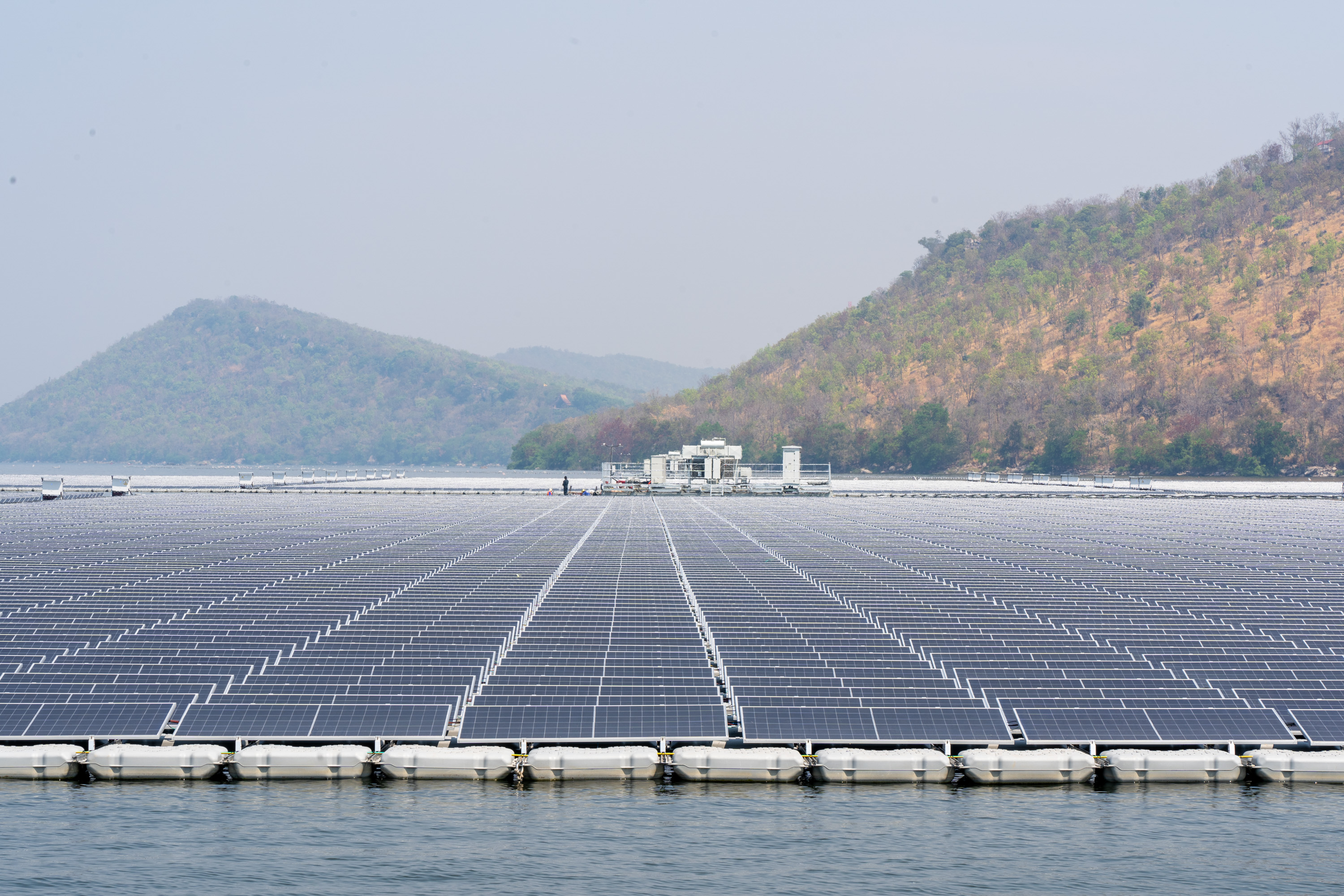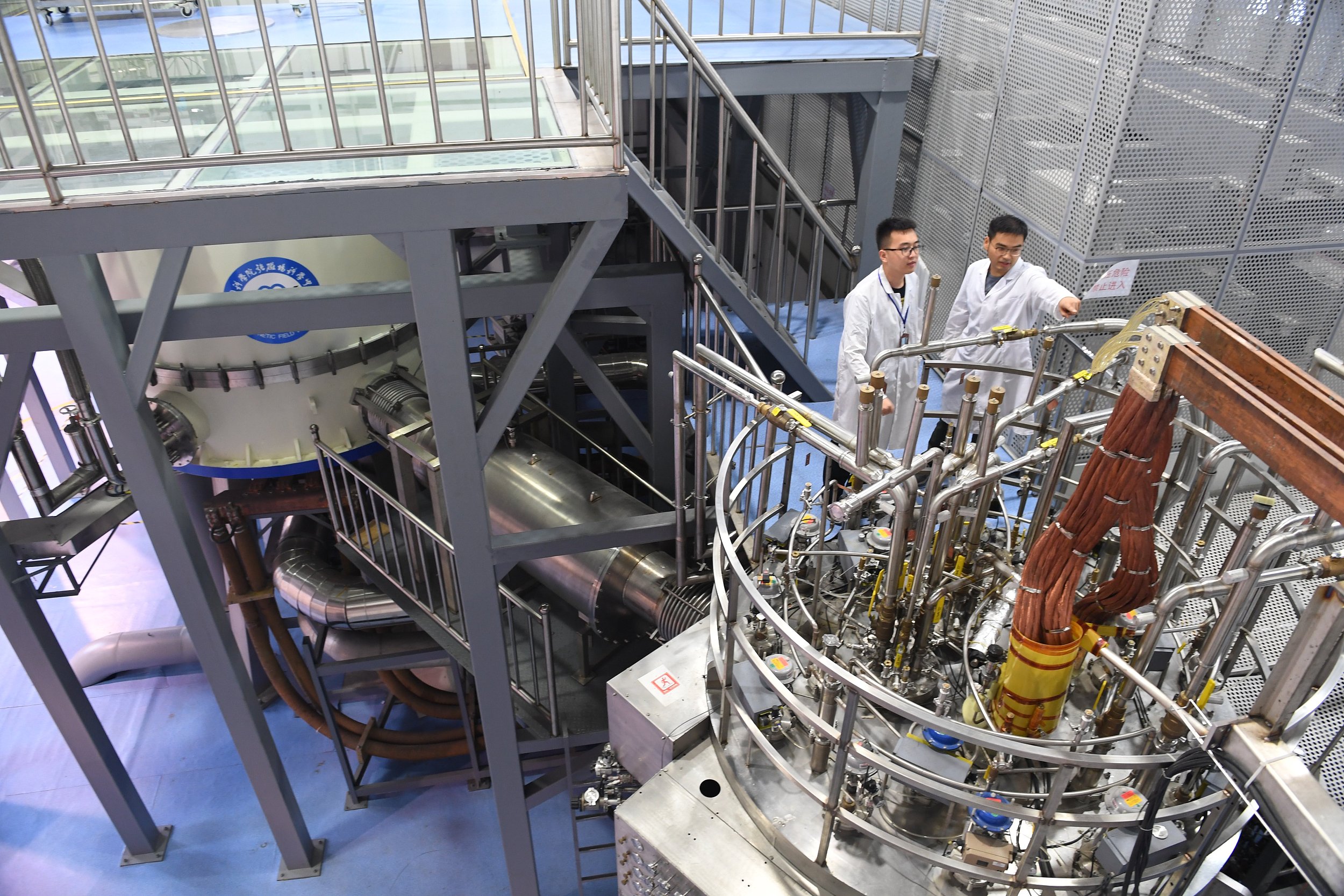China-Thailand Cooperation Produces Hydro-floating Solar Power
By Staff Reporters
A hydro-floating solar project jointly built by Chinese and Thai companies started commercial operation on March 5 to support Thailand's clean energy development drive.
The Ubolratana Dam hydro-floating hybrid power plant, located in Thailand's northeastern Khon Kaen province, integrates floating solar panels with clean hydropower, a high-efficiency energy storage system, and a smart energy management system, according to Dongfang Electric International Corporation, which built the project with its Thai partner and is one of the largest manufacturers of power-generating equipment.
Similar to land-based photovoltaic power stations, floating solar panels generate electricity from the sun’s rays. The water on which they float helps to cool the panels, making them 15 percent more efficient than terrestrial solar, according to an estimate from the U.S.-based Environmental and Energy Study Institute.
Also, floating photovoltaic plants take up less land and make better use of water space.
Jiraporn Sirikum, deputy governor of the Electricity Generating Authority of Thailand, said building floating solar hybrid power plants is an important step toward clean energy production and power stability in Thailand. Sirikum praised Chinese and Thai companies for delivering the project ahead of schedule, according to Xinhua.
"This showed a serious commitment to promoting clean energy in Thailand. We sincerely hope that the floating solar will help to promote clean energy for the community economy and local society," Jiraporn said at the commercial operation launch.
A Chinese company built a similar floating solar plant in Indonesia, which is the largest of its kind in Southeast Asia. The power plant built by PowerChina Huadong Engineering Corporation is expected to produce 300 million kilowatt hours of energy annually and has a 192-megawatt peak capacity.



